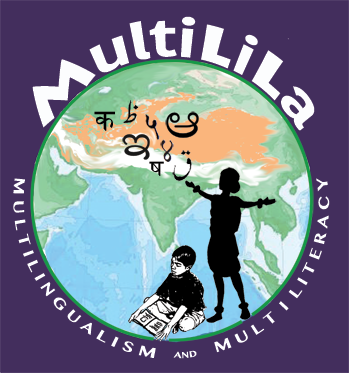Project Introduction
The project aims to assess cognitive abilities known to underpin learning and
thought processes of children educated in challenging contexts in India. It will explore the complex dynamics of social, economic and geographical contexts and how these affect the delivery of quality multilingual education in India. The research will focus on a range of factors affecting educational quality in India (e.g. availability of mother-tongue support in school), teaching practices and their effect on the development of critical thinking and problem solving abilities, and on structural and social factors.
Project Methods

Preliminary findings
A preliminary analysis of 344 children in New Delhi has been presented in several events. This included a distinction between slum and non-slum areas as well as a gender distinction with respect to performance on the whole battery of numeracy tasks. Please read the Latest news.
Principal Investigator: Professor Ianthi Maria Tsimpli
Co-Investigators (India):
National Institute of Mental Health and Neuro Sciences, Karnataka (Prof. Suvarna Alladi);
The English & Foreign Languages University, Hyderabad (Dr Lina Mukhopadhyay), and
Jawaharlal Nehru University, New Delhi (Prof. Minati Panda)
Co-Investigators (UK)
University of Cambridge (Dr Denes Szucs), and
University of Reading (Prof. Theodore Marinis and Prof. Jeanine Treffers-Daller)
Project Partners
- British Council, India
- Language and Learning Foundation (India)
- ASER, India
- Digantar Shiksh evam Khelkud Samiti (India)
- The Little Angels School (India)
- Bilingualism Matters (UK)
- Quest for Learning (UK)
- The Communication Trust (UK)
Funding: ESRC Research Grant No.: ES/N010345/1

